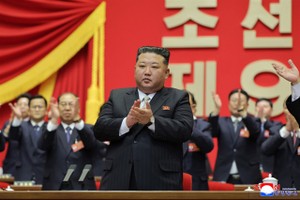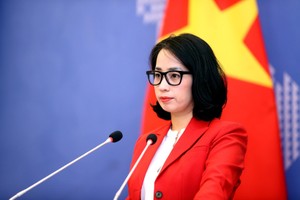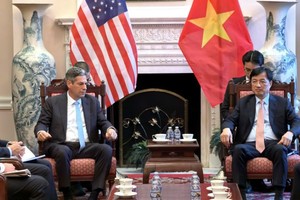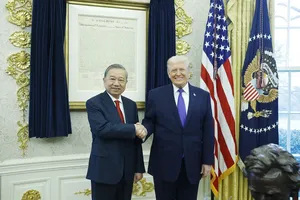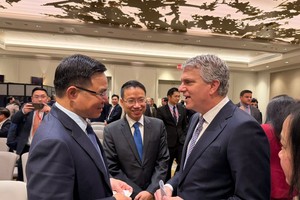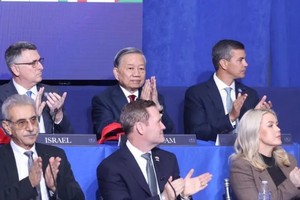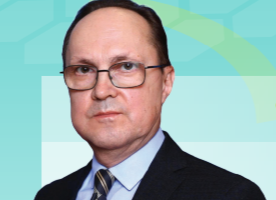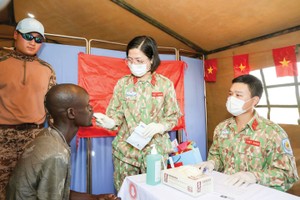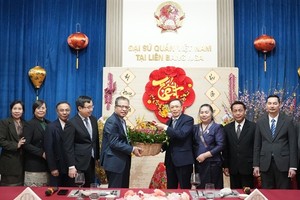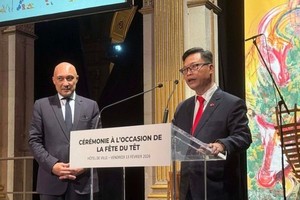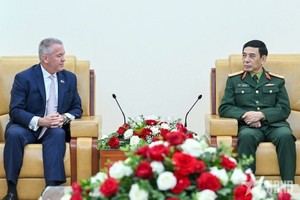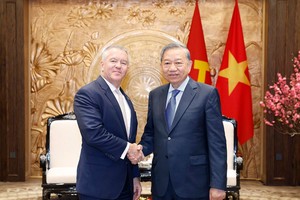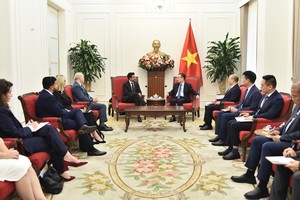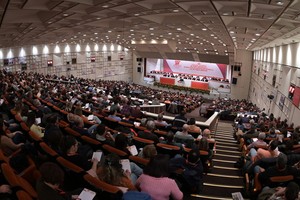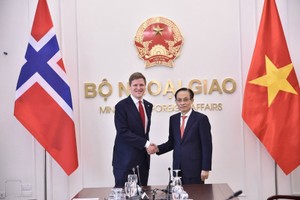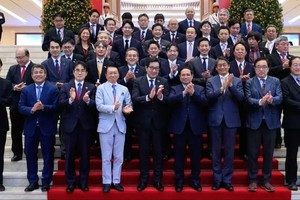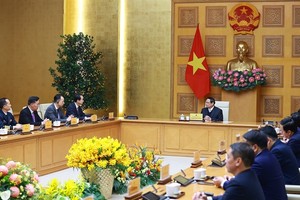The two leaders will hold their first summit talks Friday (U.S. time), following a dinner hosted by Trump and his wife, Melania, at the White House the day before.
The most urgent issue for the meeting is North Korea's evolving nuclear and missile capabilities, officials from the South Korean presidential office Cheong Wa Dae noted.
The communist North has conducted five missile tests in violation of various U.N. Security Council resolutions since Moon took office May 10.
In a recent interview with a foreign news outlet, the new South Korean president said Pyongyang may develop an intercontinental ballistic missile that can reach the mainland United States in the "not too distant future."
"We expect the two leaders will hold frank discussions on the countries' joint efforts to peacefully and fundamentally resolve the North Korean nuclear issue," Chung Eui-yong, head of the presidential National Security Office, said earlier.
Chung, however, noted the most important goal, if not an outcome, of the summit is for the two leaders to form a personal friendship that would enable such discussions over the next five years.
"We hope the two heads of state will form a close relationship and trust, so over the next five years, they will establish a close consultative mechanism through telephone conversations whenever necessary, reciprocal visits and multilateral meetings," he said.
Moon's five-year term ends in May 2023, while Trump's first four-year term is set to end in January 2022.
The upcoming talks between Moon and Trump will also discuss ways to develop their countries' alliance into a "greater" one.
"Most of all, we hope the leaders will reach a consensus on the importance of the Korea-U.S. alliance. We also hope cooperation between the two countries will continue to enhance in its scope and depth," Chung said.
Many thorny issues also await the two new heads of state.
Seoul's temporary suspension of the deployment of the THAAD U.S. missile defense system to South Korea has raised concerns in both countries over a possible withdrawal of the U.S. missile shield.
Moon, however, said the temporary suspension, pending an environmental impact assessment, was only aimed at boosting what he called the "procedural legitimacy" of the U.S. missile shield and that it did not mean any change in his country's decision to host the missile defense system.
The Korea-U.S. free trade agreement is another possible source of friction between the two as the U.S. president has called the agreement a "horrible deal."
